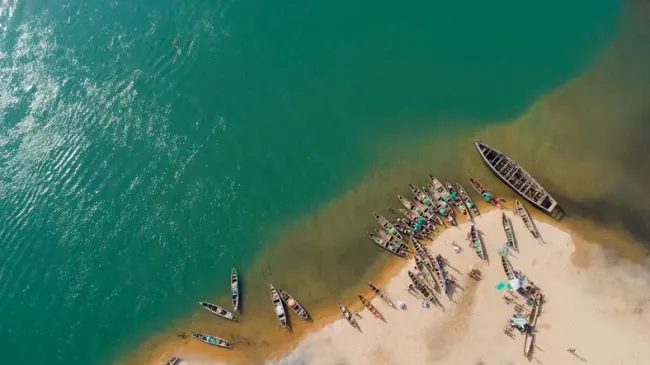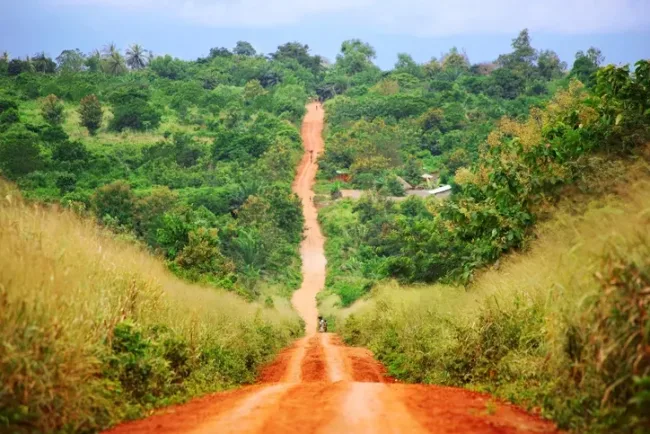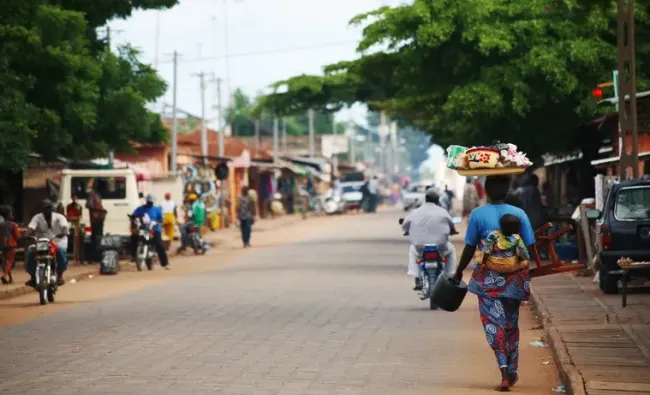
Welcome to Benin
Planning a trip to Benin? Discover if you need a visa, which type suits your travel needs, and how to apply easily with us so you can concentrate on your adventure.

What’s a Benin eVisa and who’s it for?
Who’s the Benin eVisa for?
Most nationalities travel to Benin for tourism and business opportunities.
Who isn’t eligible for the Benin eVisa?
Individuals from visa-exempt African countries and those not meeting entry requirements.
What’s the purpose of the Benin eVisa?
This travel document facilitates:
-
Tourism: Discovering Benin’s attractions and culture.
-
Business: Engaging in short-term business activities without employment.
How long can you stay with the Benin eVisa?
Based on selection, there are options for 30 or 90 days, with single or multiple entries.
Learn more about the Benin eVisa
What other Benin Visa options are available and who are they for?
Benin welcomes travelers with various visa options, each designed to cater to different aspects of their journey—whether it's for business, tourism, or residency. Here's a closer look at what Benin has to offer:
-
Business Visa: Tailored for professionals engaging in economic activities such as business meetings and trade agreements. Valid for 90 days, it facilitates your professional endeavors in Benin.
-
Tourist Visa: Dive into Benin's rich culture and stunning landscapes. For those not eligible for an electronic visa, the tourist visa comes in two forms: a standard visa valid for 30 days and a short-stay tourist visa valid for eight days.
-
Residence Permit for Benin: Planning a longer stay? Benin offers two types of residence permits. The Short-Stay residence permit, valid for one year with the possibility of extension, is perfect for work, study, or other purposes. For those who have already spent two years with a short-stay permit, the Long-Stay residence permit opens the door to a ten-year validity, embracing you into the Benin community.
At iVisa, while we don’t currently process these specific visas, your journey to Benin begins with knowledge and preparation. For more detailed information and to apply, please visit the official Benin visa website.

Exploring the riches of Benin: Health and safety essentials
Planning an adventure to Benin? Stay informed with crucial health guidelines for a stress-free journey. Here's what every traveler to Benin needs to know.
Make sure to stay updated on routine vaccines
-
Stay informed about Benin's COVID-19 guidelines, including any quarantine, testing, or vaccination certification requirements. These details are on your airline or Benin's official government website.
-
Vaccinations for diseases such as yellow fever are mandatory for entry into Benin. Additionally, vaccinations for hepatitis A and B, typhoid, and malaria prophylaxis are recommended. For the most current advice, consult the World Health Organization (WHO) or Centers for Disease Control and Prevention (CDC).
Medical facilities in Benin
-
Urban vs. rural medical facilities: While larger cities in Benin, like Cotonou, offer several healthcare options, including clinics and hospitals, rural areas might be limited in medical facilities. The distance to the nearest hospital could be significant.
-
Medical costs: Healthcare services that might be affordable or covered by insurance in other countries can be expensive in Benin. Ensure you have comprehensive travel health insurance that covers medical expenses within Benin. Many local facilities demand proof of insurance or upfront payment.
-
Availability of medications: Pharmacies in urban areas generally stock a wide range of prescription and over-the-counter medications. However, availability might be limited in more remote areas.
Health insurance
Before embarking on your trip to Benin, securing health insurance is crucial. Healthcare in Benin, especially private medical care, can be costly. Opt for travel insurance that offers extensive medical coverage.
When selecting your insurance plan, consider the following:
-
High medical coverage limits.
-
Coverage for trip cancellations, delays, and interruptions.
-
Benefits for medical expenses and medical evacuation.
-
Baggage coverage.
Things to be aware of when visiting Benin
When visiting Benin, in addition to climate and environmental conditions, consider these additional points for a safe and enjoyable trip:
-
Understanding and respecting local customs and traditions is crucial. Dress modestly, especially when visiting religious sites, and always ask permission before taking photographs of people.
-
It's advisable to drink bottled or treated water. Avoid tap water, ice in drinks, and raw or undercooked food to prevent waterborne illnesses.
-
Protect yourself against mosquito bites as diseases like malaria, dengue, and yellow fever are present. Use insect repellent, wear long-sleeved shirts and pants, and sleep under a mosquito net if staying in areas with a high risk of mosquito-borne diseases.
-
While Benin is generally safe for travelers, petty crimes like pickpocketing can occur, especially in crowded areas. Be cautious with your belongings, avoid walking alone at night, and use reputable transportation services.
-
Road conditions and driving standards can differ significantly from what you might be used to. Use caution when crossing streets, and consider hiring a local driver familiar with the area for longer journeys.
-
Carry a basic travel health kit with essential medication and first-aid supplies. Know the location of the nearest hospital or medical facility in case of an emergency.
Bringing medication to Benin
If you're bringing medication into Benin, follow these guidelines:
-
Declare all medications to customs authorities.
-
Keep medicines in their original packaging and carry them in transparent bags in your hand luggage.
-
Carry a prescription or doctor's letter, preferably in French or English, to present at customs.
-
Verify the legality of your prescription(s) by contacting the embassy before your trip.
-
Limit the quantity of medication to what is reasonable for the duration of your stay to avoid any issues.


 India Visa
India Visa
 Turkey Visa
Turkey Visa
 United States Visa
United States Visa
 Australia Visa
Australia Visa
 Colombia Visa
Colombia Visa
 New Zealand Visa
New Zealand Visa
 China Visa
China Visa
 Egypt Visa
Egypt Visa
 Vietnam Visa
Vietnam Visa
 Indonesia Visa
Indonesia Visa
